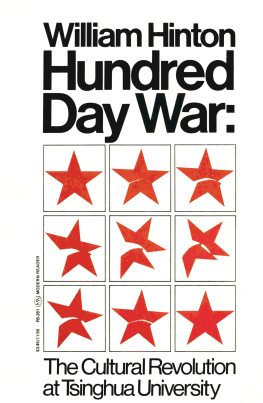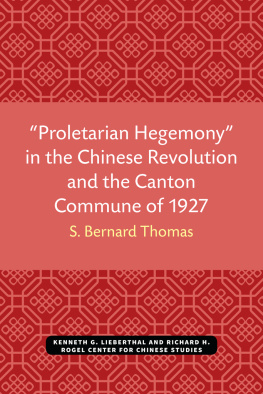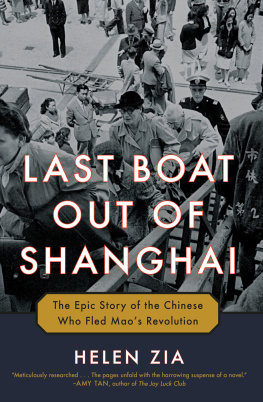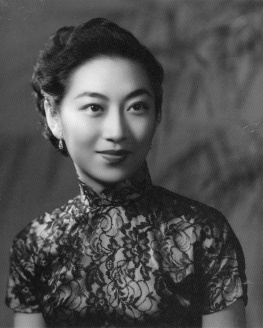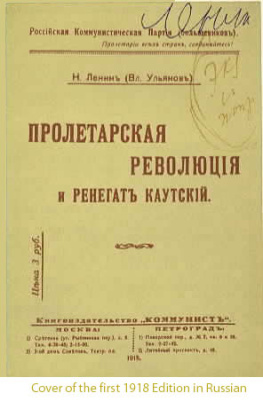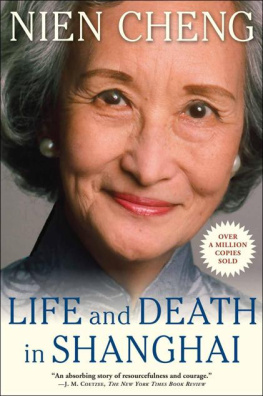Elizabeth J. Perry - Proletarian Power: Shanghai In The Cultural Revolution
Here you can read online Elizabeth J. Perry - Proletarian Power: Shanghai In The Cultural Revolution full text of the book (entire story) in english for free. Download pdf and epub, get meaning, cover and reviews about this ebook. year: 1997, publisher: Westview Press, genre: History. Description of the work, (preface) as well as reviews are available. Best literature library LitArk.com created for fans of good reading and offers a wide selection of genres:
Romance novel
Science fiction
Adventure
Detective
Science
History
Home and family
Prose
Art
Politics
Computer
Non-fiction
Religion
Business
Children
Humor
Choose a favorite category and find really read worthwhile books. Enjoy immersion in the world of imagination, feel the emotions of the characters or learn something new for yourself, make an fascinating discovery.

- Book:Proletarian Power: Shanghai In The Cultural Revolution
- Author:
- Publisher:Westview Press
- Genre:
- Year:1997
- Rating:5 / 5
- Favourites:Add to favourites
- Your mark:
- 100
- 1
- 2
- 3
- 4
- 5
Proletarian Power: Shanghai In The Cultural Revolution: summary, description and annotation
We offer to read an annotation, description, summary or preface (depends on what the author of the book "Proletarian Power: Shanghai In The Cultural Revolution" wrote himself). If you haven't found the necessary information about the book — write in the comments, we will try to find it.
Proletarian Power: Shanghai In The Cultural Revolution — read online for free the complete book (whole text) full work
Below is the text of the book, divided by pages. System saving the place of the last page read, allows you to conveniently read the book "Proletarian Power: Shanghai In The Cultural Revolution" online for free, without having to search again every time where you left off. Put a bookmark, and you can go to the page where you finished reading at any time.
Font size:
Interval:
Bookmark:
Proletarian Power
Proletarian Power: Shanghai in the Cultural Revolution, Elizabeth J. Perry and Li Xun
The Taiwan-China Connection: Democracy and Development Across the Taiwan Straits, Tse-Kang Leng
Trade and Transformation in Korea, 1876-1945, Dennis L. McNamara
Hidden Horrors: Japanese War Crimes in World War II, Yuki Tanaka
Encountering Macau: A Portuguese City-State on the Periphery of China, 1557-1999, Geoffrey C. Gunn
How the Farmers Changed China: Power of the People, Kate Xiao Zhou
From Plan to Market: The Economic Transition in Vietnam, Adam Fforde and Stefan de Vylder
A "New Woman" of Japan: A Political History of Kat Shidzue, Helen M. Hopper
Japanese Colonialism in Taiwan: Land Tenure, Development, and Dependency, 1895-1945, Chih-ming Ka
Vietnam's Rural Transformation, edited by Benedict J. Tria Kerkvliet and Doug J. Porter
The Origins of the Great Leap Forward: The Case of One Chinese Province, Jean-Luc Domenach
Privatizing Malaysia: Rents, Rhetoric, Realities, edited by Jomo K. S.
The Politics of Democratization: Generalizing East Asian Experiences, edited by Edward Friedman
Our Land Was a Forest: An Ainu Memoir, Kayano Shigeru
The Political Economy of Chinas Financial Reforms: Finance in Late Development, Paul Bowles and Gordon White
Reinventing Vietnamese Socialism: Doi Moi in Comparative Perspective, edited by William S. Turley and Mark Selden
City States in the Global Economy, Stephen Chiu, Kong-Chong Ho, Tai-Lok Lui
North Koreans in Japan: Language, Ideology, and Identity, Sonia Ryang
Were We the Enemy? Rinjiro Sodei
Shanghai in the Cultural Revolution
Elizabeth J. Perry
and Li Xun

Transitions: Asia and Asian America
First published 1997 by Westview Press
Published 2018 by Routledge
711 Third Avenue, New York, NY 10017, USA
2 Park Square, Milton Park, Abingdon, Oxon OX14 4RN
Routledge is an imprint of the Taylor & Francis Group, an informa business
Copyright 1997 Taylor & Francis.
All rights reserved. No part of this book may be reprinted or reproduced or utilised in any form or by any electronic, mechanical, or other means, now known or hereafter invented, including photocopying and recording, or in any information storage or retrieval system, without permission in writing from the publishers.
Notice:
Product or corporate names may be trademarks or registered trademarks, and are used only for identification and explanation without intent to infringe.
Library of Congress Cataloging-in-Publication Data
Perry, Elizabeth J.
Proletarian Power: Shanghai in the Cultural Revolution /
Elizabeth J. Perry and Li Xun.
p. cm.(TransitionsAsia and Asian America)
Includes bibliographical references and index.
ISBN 0-8133-2166-2 (hc.) ISBN 0-8133-2165-4 (pbk.)
1. Working classChinaShanghaiPolitical activity
History20th century. 2. ChinaHistoryCultural Revolution,
19661969. I. Li, Xun. II. Title. III. Series.
HD8738.P47 1997
322.4'1'0951132dc20 96-42940
CIP
ISBN 13: 978-0-8133-2165-3 (pbk)
This collaborative project was made possible by financial support from a number of sources. A Luce Foundation grant for the study of modern Shanghai brought Li Xun to Berkeley, while a research grant from the Institute of International Studies of the University of California at Berkeley permitted her to remain long enough to complete her contribution. Grants from the National Endowment for the Humanities, the Guggenheim Foundation, and the Chiang Ching-kuo Foundation enabled Elizabeth Perry's participation.
The research for this book was conducted primarily at the Shanghai Municipal Archives. We are grateful to the staff of that institution, and to the Shanghai Federation of Trade Unions (where Li Xun worked as a researcher for many years), for facilitating access to invaluable source materials.
Insightful readings of the book manuscript (in whole or in part) were under-taken by Lowell Dittmer, Roderick MacFarquhar, Michael Schoenhals, Dorothy Solinger, Wang Shaogang, Jeffery Wasserstrom, Ernest Young, and especially Mark Selden. Research assistance was provided by Susan McCarthy and Douglas Stiffler. Credit for the bibliography and index goes to Martin Beversdorf.
Essential as all this help was in improving the final product, the authors accept full responsibility for any errors in fact or interpretation that may remain.
Elizabeth J. Perry
Li Xun
- CLCC Criticize Lin Biao-Criticize Confucius campaign
- CR Cultural Revolution
- CRSG Cultural Revolution Small Group
- CYL Communist Youth League
- KMT Kuomintang
- NPC National People's Congress
- PLA People's Liberation Army
- PRC People's Republic of China
- SFTU Shanghai Federation of Trade Unions
- SPC Shanghai Party Committee
- SRC Shanghai Revolutionary Committee
- WGH Workers' General Headquarters
- WPT Workers' Propaganda Teams
- WTT Workers' Theory Troops
China's Cultural Revolution (CR) looms as one of the most important, yet least understood, milestones of the twentieth century. Its significance derives not simply from its immense impact on subsequent developments within China, but also from what it reveals more generally about patterns of collective action under conditions of extreme politicization. Having built one of the most powerful systems of state domination the world had ever seen, Mao Zedong in 1966 then called upon the revolutionary masses of China to "bombard the headquarters"that is, to attack the party-state apparatus itself.
In responding to Mao's clarion call, Chinese citizens evidenced a capacity for political activism that startled even the most seasoned observers of Communist systems, reliant as they had been upon a totalitarian model that downplayed the influence of social forces. Analytical lenses had to be hastily refashioned to reflect new realities. As Franz Schurmann wrote in the second edition of his classic Ideology and Organization in Communist China,
That extraordinary event known as the Great Proletarian Cultural Revolution, which came as a surprise to almost everyone in the field, called into question many analyses of China done by the growing corps of scholars of contemporary China.... Evidence indicates that the forces of Chinese society are equally as important as those coming from the structure of state power.... China's major social classes exert great pressure on the ideology and organization which direct that country.... This does not mean that China has ceased to be Communist, but that its communism has undergone a major transformation as the result of the Cultural Revolution.
Schurmann was not alone in drawing attention to the newfound salience of social forces. The CR marked a watershed in the analysis of contemporary Chinese politics. A number of careful monographic studies of the Cultural Revolution highlighted the role of mass participation in shaping this historic event. Facilitated by the emergence of new primary sources, most notably the Red Guard press and refugee interviews, a younger cohort of scholars jettisoned the totalitarian model in favor of alternative approaches designed to explain the political activism of ordinary citizens.
Pathbreaking as this research proved to be, its findings were nonetheless constrained by the limitations of the new sources themselves. The Red Guard materials revealed much about the actions and attitudes of students in Guangzhou and Beijing, but relatively little about the perspectives and political movements of
Font size:
Interval:
Bookmark:
Similar books «Proletarian Power: Shanghai In The Cultural Revolution»
Look at similar books to Proletarian Power: Shanghai In The Cultural Revolution. We have selected literature similar in name and meaning in the hope of providing readers with more options to find new, interesting, not yet read works.
Discussion, reviews of the book Proletarian Power: Shanghai In The Cultural Revolution and just readers' own opinions. Leave your comments, write what you think about the work, its meaning or the main characters. Specify what exactly you liked and what you didn't like, and why you think so.


